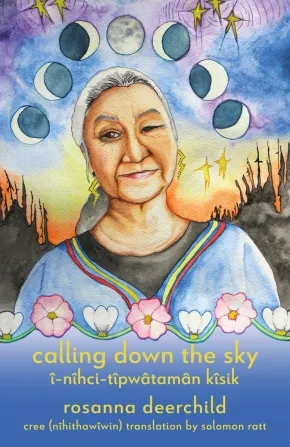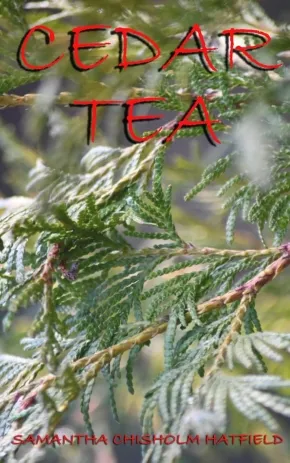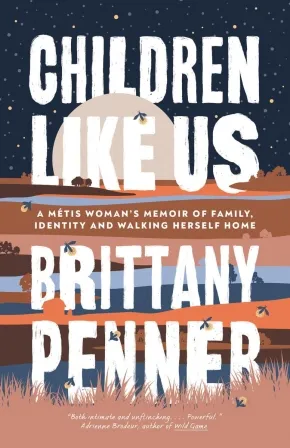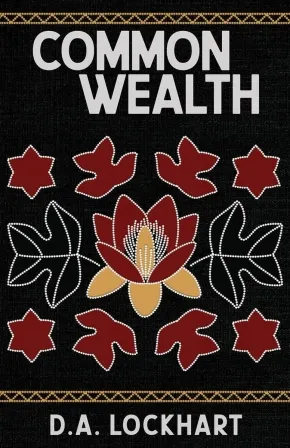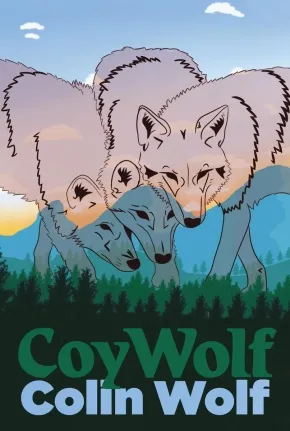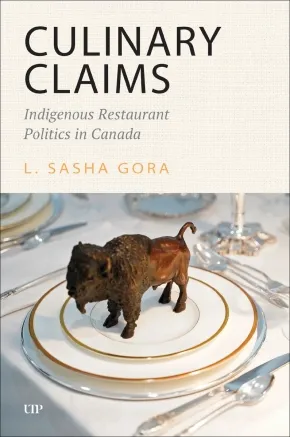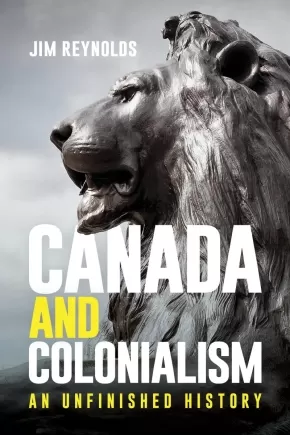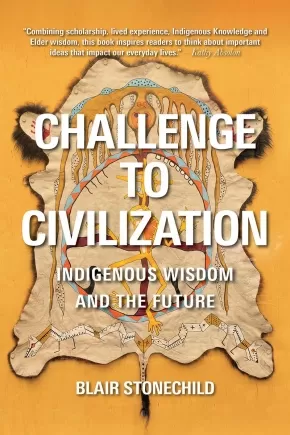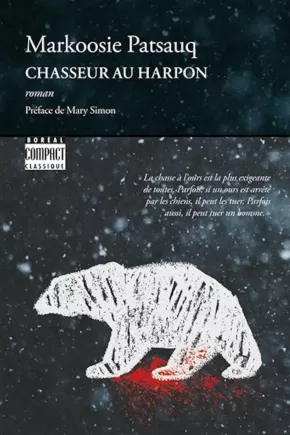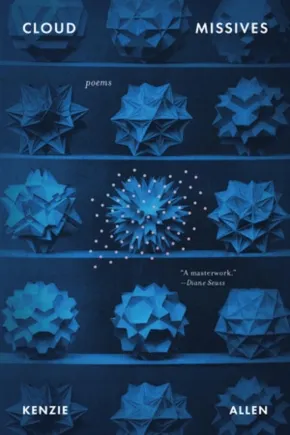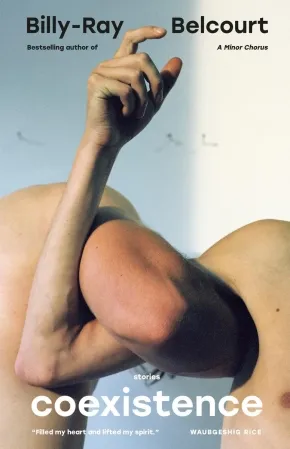
Browse Books for Adults
1
-
15
of
106 Results; (Books Starting With "C")
Sort By
Go To
of 8
Calling Down the Sky: Tenth Anniversary Edition
$24.95
Text Content Territories:
Indigenous Canadian; Métis; Inuit; First Nations;
ISBN / Barcode: 9781552455159
Synopsis:
Synopsis:
A tenth anniversary bilingual edition in English and Cree of Rosanna Deerchild’s stunning collection about the intergenerational impacts of the Canadian residential school system.
you want me to
share my story
ok then
here it is
here in the unwritten
here in the broken lines
of my body that can never forget
In Calling Down the Sky, poet Rosanna Deerchild viscerally evokes her mother’s experience within the residential school system, the Canadian government’s system of violently removing Indigenous children from their homes, families, and languages in an explicit attempt to destroy Indigenous cultures and identities. With precise and intricate poetry, Deerchild weaves together the story of her mother’s childhood and Deerchild’s memories of her mother: her love of country music, her attempts to talk about what happened to her, how tightly she braided her daughter’s hair on the first day of school. In doing so, Deerchild illustrates the disruptive and devastating impacts of the residential school system on generations of families while also celebrating the life and culture of her mother and other survivors.
Published for the first time in a bilingual edition of Cree and English, in time for the tenth anniversary of the original publication, Calling Down the Sky is an intimate and gorgeously evoked reckoning with a horrifying part of North American history.
Reviews
“Rosanna Deerchild’s poems roll off the tongue as easy as old country songs. With her deft hand, Deerchild finely tunes every word and weaves them together as intimately as she braids her girls’ hair. Together, these poems create a story that sings with beautiful tension, amazing resilience, and love as big as the sky." - Katherena Vermette, Métis Writer
"The poetry collection, called calling down the sky, describes personal experiences with the residential school system in the 1950s and the generational effects it had." - CBC
"This poetry collection is fierce, raw and candid. It is also visceral, intricate and, above all, illuminating. By recounting her mother’s residential school experience in a powerfully poetic narrative, Deerchild expertly illustrates the heartbreaking trauma of that tragic saga and how it complicates relationships over generations. By beautifully and elaborately exploring those relationships and that devastating history, she finds and celebrates the resilient and hopeful spirit that many residential school survivors, like her mother, have managed to retain in the face of horror and torment. As a result, calling down the sky is an essential read in understanding the true modern history of this land and in honouring the people who survived it.” - Waubgeshig Rice
Educator Information
Bilingual: English and Cree
Additional Information
96 pages | 5.50" x 8.50"
Cedar Tea
$24.99
Format:
Paperback
Text Content Territories:
Indigenous American; Native American;
Reading Level: N/A
ISBN / Barcode: 979-8332412875
Synopsis:
Synopsis:
Cedar Tea is a heartwarming anthology of poems and short stories designed to offer comfort, healing, and emotional clarity to those in need. Inspired by the soothing properties of traditional Pacific Northwest Cedar Tea, this collection serves as a trusted companion, providing wisdom, peace, and solace for anyone navigating life's challenges.
Whether you’re seeking emotional support during a difficult time or simply need a gentle reminder that you're not alone, Cedar Tea provides a comforting embrace through its powerful words. Each piece is a reminder that healing is possible and that you belong to a greater, compassionate whole.
Ideal for readers who seek peace, clarity, and emotional healing, Cedar Tea is an essential read for those looking to restore balance and perspective. Order your copy today and experience the healing power of storytelling, one page at a time.
Additional Information
126 Pages | 5 x 0.29 x 8 inches | Paperback
Children Like Us: A Métis Woman's Memoir of Family, Identity and Walking Herself Home
$26.00
Format:
Paperback
Text Content Territories:
Indigenous Canadian; Métis;
Reading Level: N/A
ISBN / Barcode: 9780385688000
Synopsis:
Synopsis:
A Métis girl is adopted by a Mennonite family in this breathtaking memoir about family lost and found—for those who loved From the Ashes and Educated.
By the time Brittany Penner is seven years old, she has loved and lost twenty-one foster siblings who have come into her family and left—all of them Indigenous like her. "When will it be my turn?" she asks her mother time and time again. "When will I be taken away?" You won't be, she is told. You're adopted. You're here to stay. You're the lucky one.
On the day of her birth in 1989, near the end of the Sixties Scoop, Brittany was relinquished into the care of the government and adopted by a white Mennonite family in a small prairie town. Her name and where she came from are hidden from her; all she is told is that she is Métis. Her childhood is shaped by church, family, service and silence. Her family is continuously shifting as siblings arrive and depart, one by one. She knows that to stay, she has to force herself into the mold created for her. She must be obedient. Quiet. Good. No matter what.
Whenever she looks in the mirror, she searches her features, wondering if they've been passed down to her by her biological mother. She thinks, if she can find her mother, she'll find all the answers she's looking for. As Brittany moves into adulthood, she will uncover answers—but they will be more tangled than she could have imagined.
Children Like Us asks difficult questions about family, identity, belonging and cultural continuity. What happens when you find what you're looking for, but it can't offer you everything you need? How do you reckon with the truth of your own story when you've always been told you're lucky and should be grateful? What does it mean to belong when you feel torn between cultures? And how does a person learn to hold the pain and the grief, as well as the triumphs, the joys and the beauty, allowing none to eclipse the others?
Reviews
"Children Like Us is a luminous memoir about identity, loss and belonging. Adopted at birth by a white Mennonite family, Brittany Penner grows up straddling two worlds—one she knows and one that remains just out of reach. As she pieces together her origins, she reckons with the complexities of family, love and cultural displacement. Both intimate and unflinching, Children Like Us is a powerful exploration of what it means to know where you come from—and what it costs when that knowledge is withheld." —Adrienne Brodeur, nationally bestselling author of Wild Game
"An absolutely mesmerizing debut. It was a privilege to bear witness to Brittany Penner's story about intergenerational trauma, identity, and belonging. The kinds of complicated grief we so often experience in life are born out of the complexity of human relationships and our fierce ability to both hurt and heal one another. Penner explores this truth deftly, with wisdom, compassion and grace. I hope everyone reads this book." —Claire Bidwell Smith, author of The Rules of Inheritance
Additional Information
384 pages | 5.62" x 8.25" | Paperback
Commonwealth
$19.00
Format:
Paperback
Text Content Territories:
Indigenous American; Native American; Lenape (Delaware);
Reading Level: N/A
ISBN / Barcode: 9781928120483
Synopsis:
Synopsis:
Commonwealth is a profound lyrical meditation on the pre- and post-colonial migrations of the Lenape population throughout the American Midwest, from the watershed of Weli Sipu (the Ohio River) in the Commonwealth of Kentucky to Indiana and beyond. This is a book that transcribes the languages of rivers, highways, rail lines, and buffalo traces. It seeks—or is pushed toward—destinations that are always over the horizon. It is about the fluidity of space and time, and the tangibility of history. As the Lenape journey ever northward and westward, they both create and are created by a collective body of stories: stories of belonging and exclusion, of freedom and confinement, of aspirations and hard truths. Commonwealth explores the ways landscape and people inform one another, and does so in a way that is as clear as a broad Ohio sky.
Additional Information
116 pages | 5.50" x 8.50" | Paperback
CoyWolf
$18.95
Format:
Paperback
Text Content Territories:
Indigenous Canadian; Métis;
Reading Level: N/A
ISBN / Barcode: 9780369105738
Synopsis:
Synopsis:
Isidor, a half-coyote, half-wolf coywolf, has always struggled to find his place as a half-breed. After the untimely death of his mother, he leaves his community to roam across prairies, forests, and mountains, sharing stories in his search for kinship and belonging. But as Sharp-Tooths are increasingly policed, tagged, or killed to make way for insatiable human expansion, Isidor and his pack are forced to make impossible decisions. Do they retreat to better their chances of survival, or risk everything by joining a resistance of rogue animals to protect what’s left of their homeland?
In this gripping drama, Colin Wolf weaves a powerful allegory through the lives of animals, paralleling the displacement of Métis people and the enduring struggle for Indigenous land rights on Turtle Island. CoyWolf is a hopepunk thriller and a roadmap for young revolutionaries navigating the realities of resistance, doing your best, and learning the wisdom of those who have walked the path before.
Additional Information
112 pages | 5.12" x 7.62" | Paperback
Culinary Claims: Indigenous Restaurant Politics in Canada
$34.95
Format:
Paperback
Text Content Territories:
Indigenous Canadian;
Reading Level: N/A
ISBN / Barcode: 9781487544751
Synopsis:
Synopsis:
Culinary Claims explores the complex relationships between wild plants and introduced animals, Indigenous foodways, and Canadian regulations. Blending food studies with environmental history, the book examines how cuisines reflect social and political issues related to cultural representation, restaurants, and food sovereignty.
L. Sasha Gora chronicles the rise of Indigenous restaurants and their influence on Canadian food culture, engaging with questions about how shifts in appetite reflect broader shifts in imaginations of local environments and identities. Drawing on a diverse range of sources – from recipes and menus to artworks and television shows – the book discusses both historical and contemporary representations of Indigenous foodways and how they are changing amid the relocalization of food systems.
Culinary Claims tells a new story of settler colonialism and Indigenous resistance, emphasizing the critical role that restaurants play in Canada’s cultural landscape. It investigates how food shapes our understanding of place and the politics that underpin this relationship. Ultimately, the book asks, What insights can historians gain from restaurants – and their legacies – as reflections of Indigenous and settler negotiations over cultural claims to land?
Educator Information
Subjects: Business; History / Canadian History; History / Business & Economic History; Food Studies / Food in History; Indigenous Studies / Indigenous History
Table of Contents
List of Illustrations
Preface
Introduction: You Are Welcome
1. Agricultural Flagpoles
2. From Trains to Tundra
3. Restaurants and Representation
4. An Edible Exhibition
5. One Address, Three Restaurants
6. A Meal for a Chief
7. Culinary Resurgence
8. Seal Tartare
9. Where the Beaver and Buffalo Roam
10. Salmon and the F-Word
Conclusion: The North
Acknowledgements
Notes
Bibliography
Index
Additional Information
392 pages | 6.00" x 9.00" | 34 illustrations | Paperback
Canada and Colonialism: An Unfinished History
$32.95
Format:
Paperback
Text Content Territories:
Indigenous Canadian;
Reading Level: N/A
ISBN / Barcode: 9780774880947
Synopsis:
Synopsis:
Colonialism endures in Canada today. Dismantling it requires an understanding of how colonialism operated across the British Empire and why Canada’s colonial experience was unique.
Whereas colonies such as India were ruled through despotism and violence, Canada’s white settler population governed itself while oppressing the Indigenous peoples whose lands they were on. Canada and Colonialism shows that Canadians’ support for colonial rule – both at home and abroad – is the reason colonialism remains entrenched in Canadian law and society today.
Author Jim Reynolds presents a truly compelling account of Canada’s colonial coming of age and its impacts on Indigenous peoples, including the settler-led internal colonialism behind the Indian Act and those who enforced it. As one of the nation’s leading experts in Aboriginal law, Reynolds provides a vital accounting of the historical underpinnings and contemporary challenges the nation must address to reconcile with Indigenous peoples and move toward decolonization.
Reviews
"Jim Reynolds makes a significant, original contribution to our understanding of contemporary Canada by situating its colonization within the broader British imperial project. Canada and Colonialism should be read by anyone seeking a deeper understand of the Crown’s historical and ongoing relationship with Indigenous peoples."— Kent McNeil, professor emeritus, Osgoode Hall Law School, York University
Educator Information
This must-read book provides a comprehensive understanding of Canada’s unique colonial history and the decolonization challenges facing the nation. Canada and Colonialism belongs in classrooms, living rooms, boardrooms, and government chambers.
Table of Contents
Introduction
1 Historical Overview
2 The Essentials of the Empire
3 Self-Rule and Despotism
4 The Rulers and Their Rule
5 Canadian Participation in the Empire
6 Internal Colonialism in Canada
7 Independence, Self-Government, and Reconciliation
Conclusion
Notes; Suggestions for Further Reading; Index
Additional Information
328 pages | 6.00" x 9.00" | 35 b&w photos, 23 illustrations | Paperback
Challenge to Civilization: Indigenous Wisdom and the Future
$29.95
Format:
Paperback
Text Content Territories:
Indigenous;
ISBN / Barcode: 9780889779815
Synopsis:
Synopsis:
Rediscovering, valuing, and embracing Indigenous spirituality and wisdom is critical for humanity to survive in the future.
Civilization is a western, Eurocentric construct borne from a distrust of nature, a desire to endlessly exploit it and profit from it. Despite being a relatively recent development, civilization’s inherent logic has resulted in over-population, inequality, poverty, misery, war, and climate change and now threatens humanity’s very survival. How can humanity expect to survive if it continues to look for solutions from the very structures and ideologies that have brought it to the brink of extinction?
In this final book of his trilogy, Dr. Blair Stonechild deftly illustrates how Indigenous spirituality, wisdom, and land-based knowledge is critical to human survival in the face of environmental destruction and human-induced climate change. Reinterpreting world history from an Indigenous perspective, Stonechild’s solution to this unfolding catastrophe is “ecolization,” a state in which humans recognize they are not the central purpose of creation and a way of existing harmoniously with the natural and spiritual worlds.
Beautifully written, urgent, and critical, Challenge to Civilization reminds us that it is not Earth that is in danger of extinction, but ourselves, and Indigenous spiritual wisdom can be the guiding light through what will otherwise be humanity’s final, ever-darkening days.
Reviews
"Stonechild examines the history of Eurocentric knowledge and how it does not comport with Indigenous wisdom. The narrow, individualistic definitions of “civilized” imposed by Western philosophy, academia, and ontology have shaped our world, with lasting consequences. By undervaluing Indigenous wisdom, inextricably tied to the Land, humans have developed a fear of nature, creating a potentially irreparable rift that can only be bridged by recognizing how disconnected humans have become from their place in the natural world. Stonechild warns this is a time of reckoning where our survival on this planet and the balance of nature cannot be restored unless humans redefine knowledge and what it means to be civilized." - Stacey M., High School Teacher, Indigenous Books for Schools
Educator Information
This book is included in the Indigenous Books for Schools database from the Association of Book Publishers of BC. It is recommended for Grades 10 to 12 for English Language Arts, Science, Social Studies, and Technology.
Additional Information
184 pages | 6.00" x 9.00" | Paperback
Chasseur au harpon
$14.95
Format:
Paperback
Text Content Territories:
Indigenous Canadian; Inuit;
Reading Level: N/A
ISBN / Barcode: 9782764628089
Synopsis:
Synopsis:
Les ours mettent souvent les hommes en échec, même quand ils sont traqués. La chasse à l’ours est la plus exigeante de toutes. Parfois, si un ours est arrêté par les chiens, il peut les tuer. Parfois aussi, il peut tuer un homme. Les ours blancs sont terribles. On les chasse malgré tout, car il n’y a pas le choix. Ils donnent de la nourriture et des vêtements. En pleine tempête de neige, un ours polaire attaque un campement inuit et éviscère de nombreux chiens. Convaincus que l’animal est malade et qu’il s’en prendra de nouveau aux leurs, des chasseurs se lancent à sa poursuite au péril de leur vie. Parmi eux, le jeune Kamik, qui rêve de manier le harpon avec la même aisance que son père, découvrira rapidement les dangers d’une existence que l’environnement arctique ne cesse de menacer.Paru il y a cinquante ans, Chasseur au harpon est considéré comme le premier roman en inuktitut jamais publié. Dans ce livre qui a grandement contribué à l’essor de la littérature autochtone au Canada, Markoosie Patsauq nous offre une aventure trépidante, marquée de bout en bout par la violence et la mort, et nous plonge dans la réalité d’une communauté encore préservée de l’intrusion de la modernité. Surtout, à travers la traque symbolique d’un ours et le dur apprentissage d’un jeune garçon, il met en scène le combat immémorial que ces hommes et ces femmes doivent livrer pour survivre. Pour la toute première fois, cette édition propose une traduction en français établie à partir du texte original en inuktitut, et non à partir de son adaptation en anglais. Accompagnée d’une préface de la gouverneure générale du Canada Mary Simon, ancienne présidente du Conseil circumpolaire inuit, d’une postface inédite de Patsauq et d’une note des traducteurs, elle offre une lecture nouvelle et une remise en contexte bienvenue de ce roman fondateur.
Educator Information
This book is available in English: Hunter with Harpoon
Additional Information
Paperback
Cloud Missives
$22.95
Format:
Paperback
Text Content Territories:
Indigenous Canadian; First Nations; Haudenosaunee (Iroquois);
Reading Level: N/A
ISBN / Barcode: 9781959030607
Synopsis:
Synopsis:
Intimate, dissecting, and liberating, Cloud Missives is a poetry collection of excavation and renewal. Like an anthropologist, Kenzie Allen reveals a life from what endures after tragedies and acts of survival. Across four sections, poems explore pop culture—the stereotypes in Peter Pan, Indiana Jones, and beyond—fairy tales, myths, protests, and forgotten histories, before arriving at a dazzling series of love poems that deepen our understanding of romantic, platonic, and communal love.
Cloud Missives is an investigation, a manifestation, and a celebration: of the body, of what we make and remake, of the self, and of the heart. With care and deep attention, it asks what one can reimagine of Indigenous personhood in the wake of colonialism, what healing might look like when loving the world around you—and introduces readers to a profound new voice in poetry.
Reviews
"Cloud Missives is a promise, to the reader, the speaker, the poet, and every generation before and to come. A promise not just of what to expect from Allen’s career, but a promise that the future will look back on this collection, and the time in which it was written—hopefully—with as much skillful attention as Allen has"— Chicago Review of Books
"A master of poetic attention. . . . a collection worthy of the clouds."— Pittsburgh Post-Gazette
"Filled with poems as restless as they are carefully wrought."— The Rumpus
"Incredible. . . . evocative. . . . Kenzie Allen's first volume of poetry is a stunning consideration of constructing identity, finding love, and living life."— Shelf Awareness
"In rejecting the borders previously observed by cartoonish portraits of Indigenous peoples, Allen makes room for the love song... . .Within Cloud Missives, each poem is necessary…. Each a lyric towards a more possible future."— On the Seawall
"Kenzie Allen’s Cloud Missives renders an unchartable landscape, 'wide as a child’s face,' in poems that enact Indigenous autoethnography and a profoundly embodied recovery operation. These are poems of revelation and repair, twenty-first-century poems that extend the work of the lyric into the territory of 'elegy against elegy,' love songs written to drive out violence and exoticization masked as love, and poems that wake to the desire to awaken. Along the way, there is exhumation in all its forms, of pop culture signifiers, from Peter Pan’s Tiger Lily to Indiana Jones, and revivified archetypes, from the ghost of the British Empire to the Evil Queen, harpy, fanged siren. Most crucial is the disinterment of personal scars and the violence they represent, and ancestral bones, 'piled, piled, / piled; piled; PILED; PILED, / nameless, done in, / piled—piled—piled,' each twisted foot and chipped skull a clue to an origin story and 'a keyhole to let angels in,' and the indefatigable voice out. Allen has written a masterwork of self-reclamation and survival through love."— Diane Seuss, author of frank: sonnets and Modern Poetry
"With archeological care, Allen begins a poetic and meticulous examination of the layers of life. Often surprising, these poems 'know violence / like it made me—rage / like it rocked me to sleep.' Intensely scrutinized events that involve Native women are separated into strata to reveal a powerful self and a voice that seems to have been waiting beneath the pressure of years to, at long last, speak."— Heid E. Erdrich, author of Little Big Bully
"This incredible debut announces Kenzie Allen as an important voice in Native literature. Through impeccable craft, she explores themes of health and healing, Indigenous genealogy and identity, kinship and love. These poems are a ‘song against the song of our demise.’ May their missives travel far and wide; may their words bloom like sweetgrass."— Craig Santos Perez, author of from unincorporated territory
Additional Information
128 pages | 6.00" x 9.00" | Paperback
Coexistence: Stories (PB)
$23.00
Format:
Paperback
Text Content Territories:
Indigenous Canadian;
ISBN / Barcode: 9780735242050
Synopsis:
Synopsis:
A collection of intersecting stories about Indigenous love and loneliness from one of contemporary literature’s most boundless minds.
Across the prairies and Canada’s west coast, on reserves and university campuses, at literary festivals and existential crossroads, the characters in Coexistence are searching for connection. They’re learning to live with and understand one another, to see beauty and terror side by side, and to accept that the past, present, and future can inhabit a single moment.
An aging mother confides in her son about an intimate friendship from her distant girlhood. A middling poet is haunted by the cliché his life has become. A chorus of anonymous gay men dispense unvarnished truths about their sex lives. A man freshly released from prison finds that life on the outside has sinister strictures of its own. A PhD student dog-sits for his parents at what was once a lodging for nuns operating a residential school—a house where the spectre of Catholicism comes to feel eerily literal.
Bearing the compression, crystalline sentences, and emotional potency that have characterized his earlier books, Coexistence is a testament to Belcourt’s mastery of and playfulness in any literary form. A vital addition to an already rich catalogue, this is a must-read collection and the work of an author at the height of his powers.
Reviews
“Belcourt is one of the finest and most sublime writers at work today. This book is a feat of beauty and compression, every sentence reinventing the reader. It’s like entering a quiet room or a secret lake. It’s about our coexistence with lovers, kin, enemies, but also our coexistence with desire, solitude, and an intelligence that in itself is a form of hunger—language as solace, language as light. Belcourt is the rare writer who composes from, to, and because of the soul. It’s been some time since I loved a book so deeply.”—Claudia Dey, author of Daughter
“Through the interconnected lifeworlds contained in Coexistence, we hear a defiantly loving and astoundingly honest response to colonial and racial violence. Billy-Ray Belcourt has written an homage and an elegy to a still-unfolding history—as intimate and hopeful as young romance, as mysterious and life-giving as family. I adore this collection.” —Tsering Yangzom Lama, author ofWe Measure the Earth with our Bodies
“Coexistence filled my heart and lifted my spirit. There are few writers who can authentically capture the beauty and complexity of Indigenous existence both on the rez and in the city like Billy-Ray Belcourt. This book is a resolute proclamation of resilient Indigenous humanity and the nuance and richness we all embody. The stories weave and enrich on journeys that are both familiar and informative. Coexistence is a powerful celebration and a gift to the world.” —Waubgeshig Rice, author of Moon of the Turning Leaves
“Billy-Ray Belcourt masterfully portrays the complexities of Indigenous lives, longing, and belonging through these stories. There are sentences in this collection that I didn’t know I had been waiting to read; my breath caught on several of them. I suspect that readers will be letting out collective sighs while reading this book.”—Helen Knott, author of Becoming a Matriarch
“Billy-Ray Belcourt’s Coexistence is a brilliant exploration of the boundaries both imposed and imagined that exist between beings and the spaces we inhabit. I wildly admire Belcourt’s crisp prose and remarkable insights, yet what haunts me most about these powerful stories is the author’s heart-blasted willingness to be vulnerable on the page. This engaging, alive text drills right to heart of what it is to be Indigenous in the twenty-first century.”—Mona Susan Power, author of A Council of Dolls
Additional Information
208 pages | 4.93" x 7.48" | Paperback
Cold: A Novel
$24.95
Format:
Paperback
Text Content Territories:
Indigenous Canadian; First Nations; Anishinaabeg; Cree (Nehiyawak);
Reading Level: N/A
ISBN / Barcode: 9780771002892
Synopsis:
Synopsis:
A tragic plane crash that leaves two women stranded and fighting for their lives kicks off this sweeping and hilarious novel from award-winning writer Drew Hayden Taylor that blends thriller, murder mystery, and horror with humour and spectacle.
Elmore Trent is a professor of Indigenous studies who finds himself entangled in an affair that's ruining his marriage; Paul North plays in the IHL (Indigenous Hockey League), struggling to keep up with the game that's passing him by; Detective Ruby Birch is chasing a string of gruesome murders, with clues that conspicuously lead her to both Elmore and Paul. And then there's Fabiola Halan, former journalist-turned-author and famed survivor of a plane crash that sparked a nationwide tour promoting her book.
What starts off as a series of subtle connections between isolated characters quickly takes a menacing turn, as it becomes increasingly clear that someone—or something—is hunting them all.
Taking tropes from the murder mystery, police procedural, thriller, and horror genres, Drew Hayden Taylor weaves a pulse-pounding and propulsive narrative with an intricate cast of characters, while never losing the ability to make you laugh.
Reviews
"Cold is an absolutely enthralling novel from a legendary writer and storyteller. Drew Hayden Taylor is a master of genuinely capturing contemporary Indigenous realities in fiction, making the vibrant characters in this exceptional story relatable and real. Cold is creepy and funny, smart and lively, and overall a strikingly dynamic book that will keep readers on edge from start to finish."—Waubgeshig Rice, author of Moon of the Crusted Snow and Moon of the Turning Leaves
"The myth of the Wendigo has shaped narratives from Pet Semetary to Shadow Country to The Hunger—but never in my reading has it been so cleverly and relevantly employed as it is in Drew Hayden Taylor's serpentine and haunting new novel, Cold." —Nick Cutter, author of The Troop and Little Heaven
Additional Information
368 pages | 5.50" x 8.25" | Paperback
Curve!: Women Carvers on the Northwest Coast
$45.00
Artists:
Format:
Hardcover
Text Content Territories:
Indigenous Canadian; First Nations;
Reading Level: N/A
ISBN / Barcode: 9781773272542
Synopsis:
Synopsis:
An eighty-year overview of wood and argillite carving by Indigenous women artists on the Northwest Coast.
Though women of the Northwest Coast have long carved poles, canoes, panels, and masks, many of these artists have not become as well known outside their communities as their male counterparts. These artists are cherished within their communities for helping to keep traditional carving practices alive, and for maintaining the dances, songs, and ceremonies that are intertwined with visual art production. This book, and an associated exhibition at the Audain Art Museum, gathers a range of sculptural formats by Indigenous women in order to expand the discourse of carving in the region.
Both the exhibition and publication are co-curated by Dana Claxton, artist, filmmaker and head of the University of British Columbia's Department of Art History, Visual Art and Theory; and Dr. Curtis Collins, the AAM's Director & Chief Curator. Commentaries by Skeena Reece, Claxton, and Marika Swan, and interviews with artists Dale Campbell and Mary Anne Barkhouse are presented alongside more than one hundred artworks from public and private collections across North America, including several newly commissioned pieces.
Featured artists include:
- Ellen Neel (Kwakwaka'wakw, 1916-1966) - Freda Diesing (Haida, 1925-2002) - Doreen Jensen (Gitxsan, 1933-2009) - Susan Point (Musqueam, b. 1952) - Dale Campbell (Tahltan, b. 1954) - Marianne Nicolson (Kwakwaka'wakw, b. 1969) - Arlene Ness (Gitxsan, b. 1970s) - Melanie Russ (Haida, b. 1977) - Marika Swan (Nuu-chah-nulth, b. 1982) - Morgan Asoyuf (Ts'msyen, b. 1984) - Cori Savard (Haida, b. 1985) - Cherish Alexander (Gitwangak, b. 1987) - Stephanie Anderson (Wetsuwet'en, b. 1991) - Veronica Waechter (Gitxsan, b. 1995)
Awards
- Winner of the 2025 Bill Duthie Booksellers' Choice Award
Additional Information
160 pages | 9.20" x 1.10" | 120 colour photos | Hardcover
Canadian Business Owner's Guide to Reconciliation: Best Practices for Indigenous Inclusion
$29.95
Format:
Paperback
Text Content Territories:
Indigenous Canadian;
Reading Level: N/A
ISBN / Barcode: 9781770403475
Synopsis:
Synopsis:
Reconciliation is for businesses, too.
From colonization through the Indian Act and residential schools, there is a lot of complicated history in the country we now call Canada. Between Indigenous and non-Indigenous people there is a disconnect, a fractured relationship we now need to make right. But what does Reconciliation mean, and specifically what does it mean for businesses?
The Canadian Business Owner’s Guide to Reconciliation is about how our history affects the present, and how we need to deal with the past so we can move into the future together. It’s about creating opportunities to include Indigenous voices in business, education around Indigenous history and best practices for businesses, and how we can reverse some of the unfair and unsustainable practices to create a better, more inclusive climate.
Author Alison Tedford brings her experience working with government, business, and nonprofits on Indigenous issues including reconciliation over the past two decades to this book.
If you're in business in Canada, you need to know how you can participate in reconciliation and transforming relations for a brighter future.
Additional Information
128 pages | 6.00" x 9.00" | Paperback
Carving Space: The Indigenous Voices Awards Anthology
$24.95
Editors:
Format:
Paperback
Text Content Territories:
Indigenous Canadian; Métis; Inuit; First Nations;
ISBN / Barcode: 9780771004858
Synopsis:
Synopsis:
To celebrate the fifth anniversary of the Indigenous Voices Awards, an anthology consisting of selected works by finalists over the past five years, edited by Jordan Abel, Carleigh Baker, and Madeleine Reddon.
For five years, the Indigenous Voices Awards have nurtured the work of Indigenous writers in lands claimed by Canada. Established in 2017 initially through a crowd-funded campaign by lawyer Robin Parker and author Silvia Moreno-Garcia that set an initial fundraising goal of $10,000, the initiative raised over $116,000 in just four months.
Through generous support from organizations such as Penguin Random House Canada, CELA, and others, the award has grown and have helped usher in a new and dynamic generation of Indigenous writers. Past IVA recipients include Billy-Ray Belcourt, Tanya Tagaq, and Jesse Thistle. The IVAs also help promote the works of unpublished writers, helping launch the careers of Smokii Sumac, Cody Caetano, and Samantha Martin-Bird.
For the first time, a selection of standout works over the past five years of the Indigenous Voices Award will be collected in an anthology that will highlight some of the most groundbreaking Indigenous writing across poetry, prose, and theatre in English, French, and in an Indigenous language. Curated by award-winning and critically acclaimed writers Carleigh Baker, Jordan Abel, and Indigenous scholar Madeleine Reddon, this anthology will be a true celebration of Indigenous storytelling that will both introduce readers to emerging luminaries as well as return them to treasured favourites.
Educator Information
Carving Space: The Indigenous Voices Awards Anthology: A collection of prose and poetry from emerging Indigenous writers in lands claimed by Canada includes a selection of standout work from the first five years of the Indigenous Voices Awards.
Additional Information
400 pages | 5.50" x 8.25" | Paperback
Sort By
Go To
of 8

